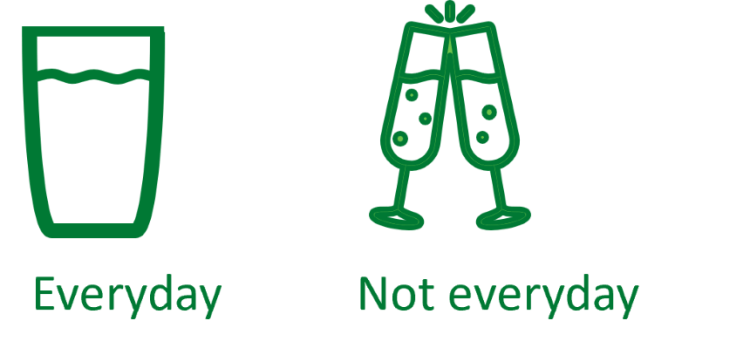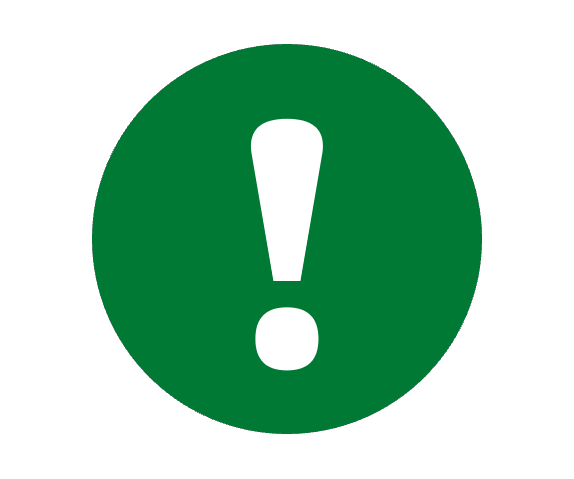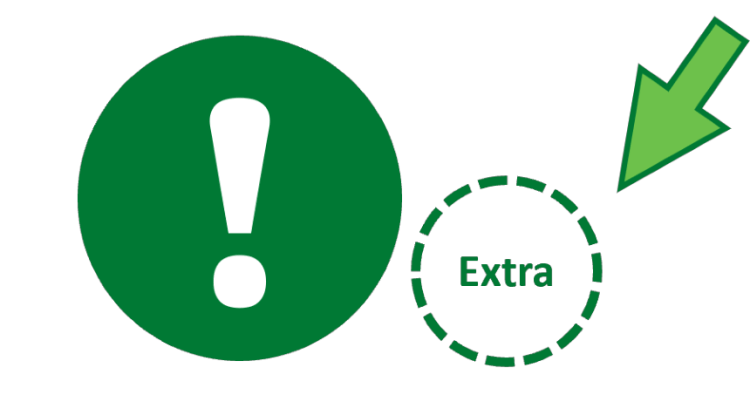An easy way to tell words apart
Earnsy Liu | January 15, 2024
Let’s start with three quick questions about when to use similar words.
1. ‘Every day’ and ‘everyday’ are the same. ‘Every day’ is US spelling and ‘everyday’ is
New Zealand spelling. True or false?
2. Continual’ and ‘continuous’ mean the same thing. Use whichever sounds better to you. True or false?
3. Use ‘that’ in formal writing. Use ‘which’ to sound casual. True or false?
Guess what? All three are false! Read on to find out how the pairs of words really differ.
Words can be tricky!
English is full of similar words that can catch people out, even those who’ve grown up speaking English.
You could just use the word that feels right, but can you be sure you’ve picked the right one? You could look in a dictionary, but that takes time and energy.
What if you could glance at a picture to jog your memory? Like this.

Water is an everyday drink. Bubbles are for special occasions. Image by Write Limited /CC BY-NC-ND
We’ve explained some commonly confused words concisely and simply, and written a couple of sentences to show each word in action. To help you visually associate the right meaning with the right word, we’ve sketched a few simple images.
Continual

‘Continual’ is when things start and stop. Image by Write Limited / CC BY-NC-ND
Use ‘continual’ when you mean ‘frequent’.
Continual exposure to loud noise will damage your hearing.
We continually assess and analyse results.
Continuous

‘Continuous’ is when you have flow. Image by Write Limited / CC BY-NC-ND
Use ‘continuous’ when you mean ‘non-stop’.
Some hydroelectricity schemes need a continuous flow of water to generate electricity.
In the story of Noah’s Ark, it rained continuously for 40 days and 40 nights.
That

Use ‘that’ when your reader needs the information to make sense of your message.
Image by Write Limited / CC BY-NC-ND
Use ‘that’ for essential information — information your reader needs to understand the sentence. Don’t use commas before or after that information.
We must replace the truck that keeps breaking down.
We need to do more of the work that makes a good profit.
Which

Use ‘which’ when you elaborate on something. Don’t forget the comma before ‘which’. Image by Write Limited / CC BY-NC-ND
Use ‘which’ for extra information — information your reader doesn’t need in order to understand your main point. Use commas before and after that information.
We must replace the truck, which is 20 years old.
The project, which has dragged on for 2 years, is well over budget.
Check out our guides
Keen to learn the differences between more words? Use our free easy-to-read guides. Download our guides to commonly confused words below.
Master other tricky things in English
Join our Great Grammar workshop to learn important points of English grammar in a fun, painless way.
Book a workshop in New Zealand Book a workshop in your time zone
(Last updated: January 2025)